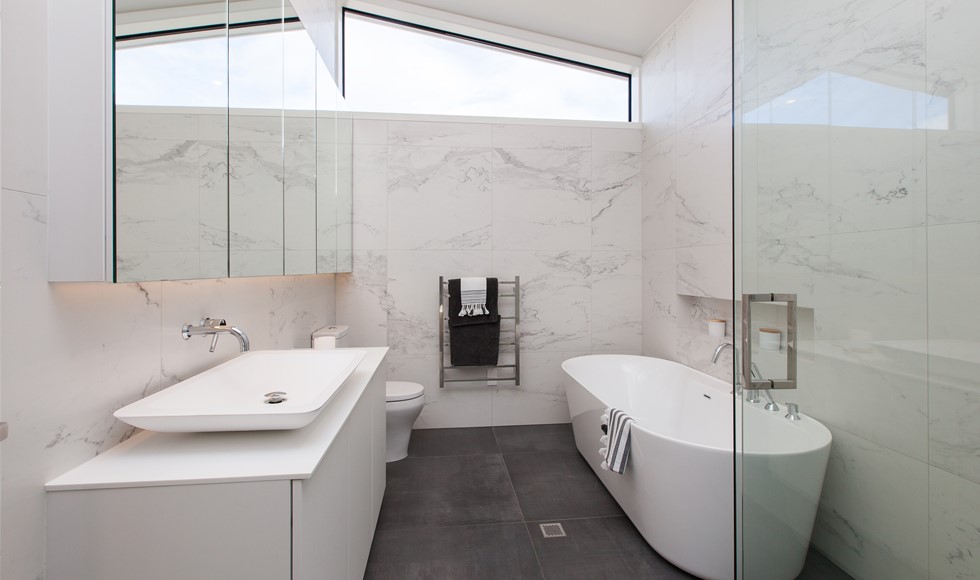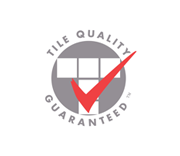
TECHNICAL BULLETIN:
SEALING FULL BODY PORCELAINS…WHY WOULD YOU?!
We believe sealing full body porcelain tiles adds more problems than it solves as QUALITY porcelain does not require sealing.
There are a number of people in our industry who still believe that polished, honed or lappato porcelain tiles should be sealed. We believe this is a market reaction to lower quality (less dense) porcelains being imported. We generally find that these inferior polished porcelains have significantly reduced stain resistance and in the natural form, will stain easily.
European Standards
The European standards are very precise (Tolerances ISO UNE EN ISO 10.545-3) and they set water absorption at less than 0.5%.
So, with such low water absorption and with the clay being milled and spray dried to such small particle size distributions before pressing and
then firing to over 1200 degrees Celsius, the resulting porcelain DID NOT NEED SEALING.
This should therefore be the end of the story. However it is not. There are now many types of porcelain that do absorb liquids and hence can benefit from sealing. Why is this so? The reason for this change is simple. Today we have so many different kinds of porcelain manufactured with different standards in different countries to meet varying pricing and performance demands. There is no doubt that the question of whether you do or do not need to seal porcelain is a legitimate question.
Tile Warehouse + Porcelain Tiles At Tile Warehouse we do not import these problematic, poorer quality, soluble, salt-polished full bodied porcelains. We do not want problems for our customers. With the increase of porcelain tiles being sealed we are increasingly aware of problems being reported. The majority of times we find that although the first to be blamed, it may not necessarily be the fault of the tile but rather, incorrect procedures at time of installation.
Sealers are being actively used and promoted for usage on porcelain tiles. However it is imperative that you think of sealer as a temporary stain barrier only. The only value in a protective sealer is that it gives people more time to respond to accidental spills on inferior product. A sealer works by closing off the deeper “pores” present on all tiles to prevent deeper penetration of contaminants. The end result is to keep the contaminant on the surface of the tile and therefore easier to access and remove.
Why do we say that sealer can create more problems than it solves? Because where most issues occur is when porcelain tiles are not properly cleaned prior to the sealing process. This results in the sealer sitting on top of any contamination that may be present. In particular over wax or grout haze and then the sealer does not penetrate into the pores of the tile as designed. Once this sealer cures on the surface of the tile, the aesthetic effect is a dullness of the finished surface. Over time this shows marking onto the surface from hand prints, bare foot print outlines and droplets of water. Once these droplets of water evaporate, what remains is effectively a “water-mark”. Finally in time the tiles aesthetic beauty is adversely affected and the customer starts to wonder why.
As we mentioned previously the first reaction may be to advise that the tile is faulty and not performing. Some installers and owners are very quick to respond that the tile is too porous and not up to standard or is an inferior quality…and so it escalates. In fact the tile is perfectly fine but it is the accumulation of a third party contaminant that is causing the deteriorating aesthetic beauty of the tile.
If you are unsure with the process or suitability of a tile or require further clarification on the above, please talk to us first. Alternatively test a sealer on a tile prior to laying. We are here to help and can recommend the correct sealer for your project.
So please take our advice and advise customers that good quality porcelain does not require sealing. If they have already purchased a tile that needs sealing then they need to make sure that the tiles are well cleaned after grouting and prior to the application of any sealers. If you read the instructions on any type of sealer it will state all contamination, waxes and oils be removed prior to application. In the end, to follow these simple instructions will prevent a lot of stress on the part of both our clients, and the customer.
Our recommendation?...Help the customer select a full body Porcelain tile range that does not require sealing.
The Team @ Tile Warehouse












